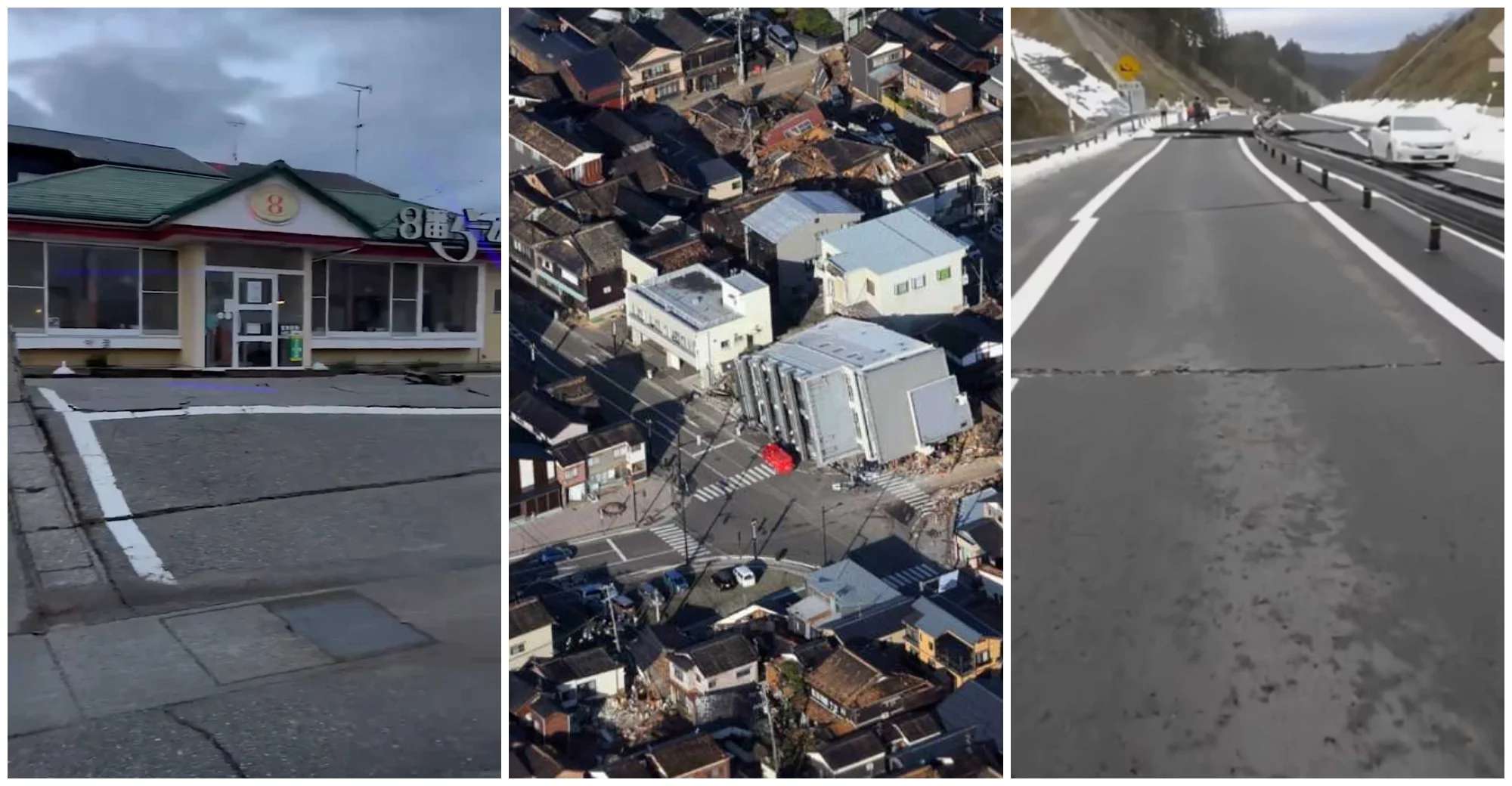Japan Earthquake 2024
A devastating earthquake with a magnitude of 7.5 had just hit Japan on 1 January 2024. Ishikawa Prefecture’s Noto Peninsula was struck by the earthquake which caused several deaths and destruction to infrastructure. The aftershocks were as strong as magnitude 5 as well. The remote Noto peninsula was one of the worst-hit areas where rescue operations have been slow due to the extensive damage that occurred.
Japan's railways have also been affected as well, with JR East Japan Railway Co. temporarily suspending operations of all Tohoku, Joetsu, and Hokuriku Shinkansen lines due to the earthquake.
Tsunami warning
The tsunami warning that was issued was at first at its highest grade, with expectations of waves as high as 5-metres. However, this has since been downgraded to 3-metres as of the time of writing this article. The whole Sea of Japan is still under a tsunami warning which will affect the Western region of Japan. The prefectures that have received this warning are Ishikawa, Niigata, Toyama, and Yamagata prefectures.
North and South Korea has issued warnings for their coastal regions as well due to the strong earthquake in Japan.
What does this mean for travel to Japan?
If you're worried about travelling to Japan right now, the main areas to avoid would be these prefectures: Ishikawa, Niigata, Toyama, and Yamagata. The cities that you might know in these prefectures are Kanazawa are Wajima (where a large-scale fire broke out). The safest thing to do would be to change your plansif you were planning on visiting thewest side of Japan as these areas are the closest to the Sea of Japan.
East Japan

Tokyo, Osaka, Kyoto, and a lot of other major tourist destinations are all in the Eastern part of Japan and are not as affected by the tsunami warning. However, there are still instances of aftershocks that are common after the earthquake.
Instead of canceling your trip, what you can do is:
- Know Japan's emergency contact number: 110
- Download the Safety Tips app by JNTO for early-warning earthquakes
- Know what to do during and after an earthquake
What to do during and after an earthquake

Always remember these 3 steps: Drop, Cover, Hold.
- Drop - Drop down to the ground for stability sake and reduce the likelihood of falling and disorientation
- Cover - Cover your head and yourself by hiding under sturdy objects such as tables. Do not go outside if you are already indoors as there may be falling debris. If you are outside, stay clear of any trees, buildings, or power lines as these may fall and injure you.
- Hold - Hold onto a sturdy object to ensure you don't fall, especially if you aren't able to find anything to go underneath.
Remember to never use the elevator during an earthquake.
If you are in a crowded area, follow the local authorities to safety. If you are near the coast, head to higher ground immediately after the earthquake to reduce the risk of being swept away by a tsunami.
Know your embassies and how to contact them when you travel!
Here are some phrases that you can use as well if you're in an emergency. They are split into the different scenarios you will encounter during a natural disaster. Remember to download them before you leave for Japan.


